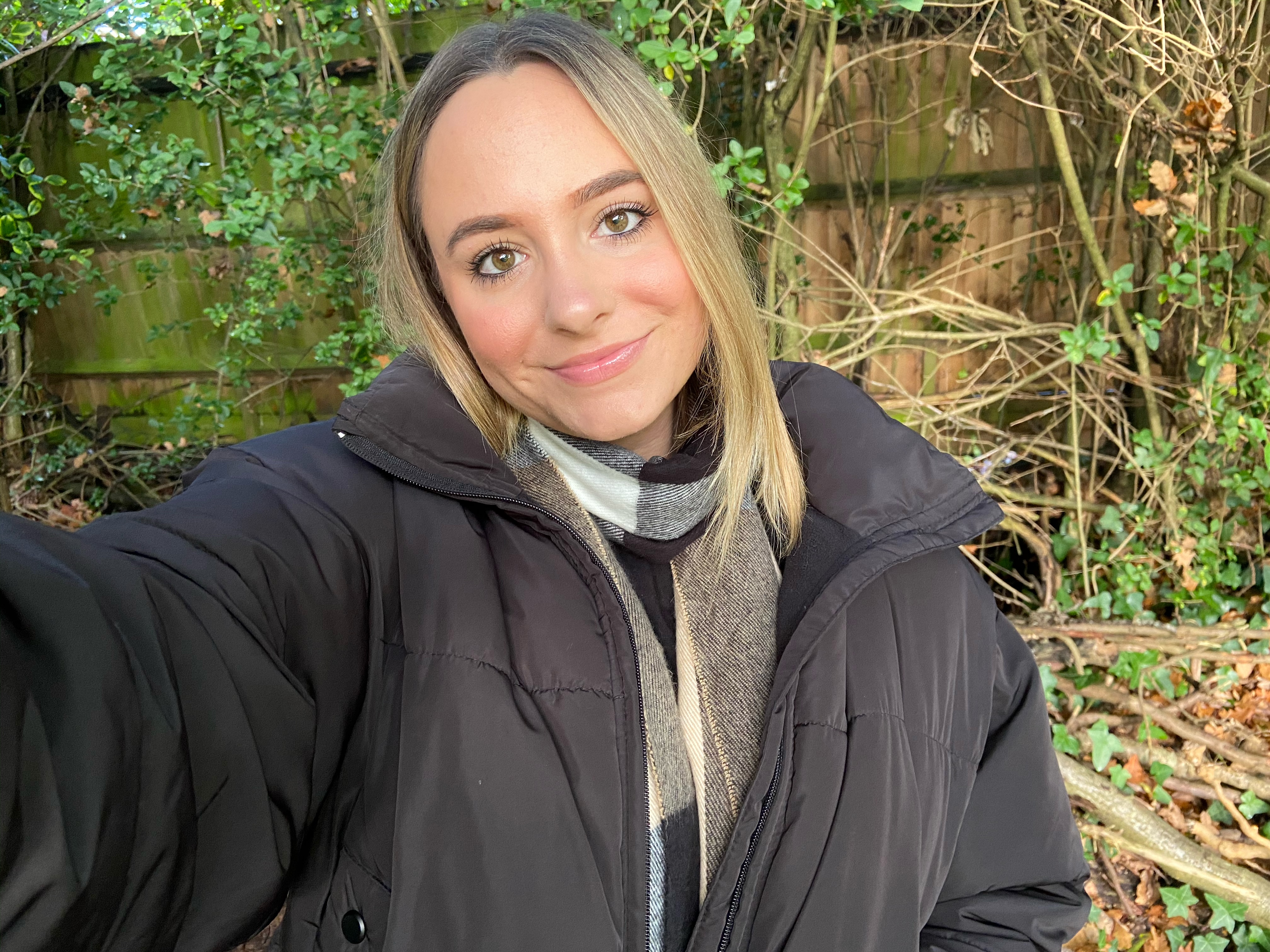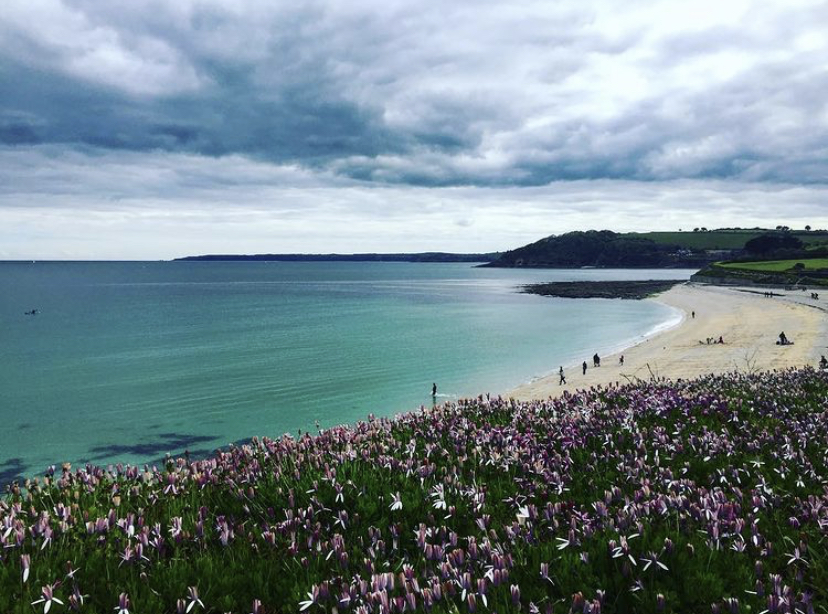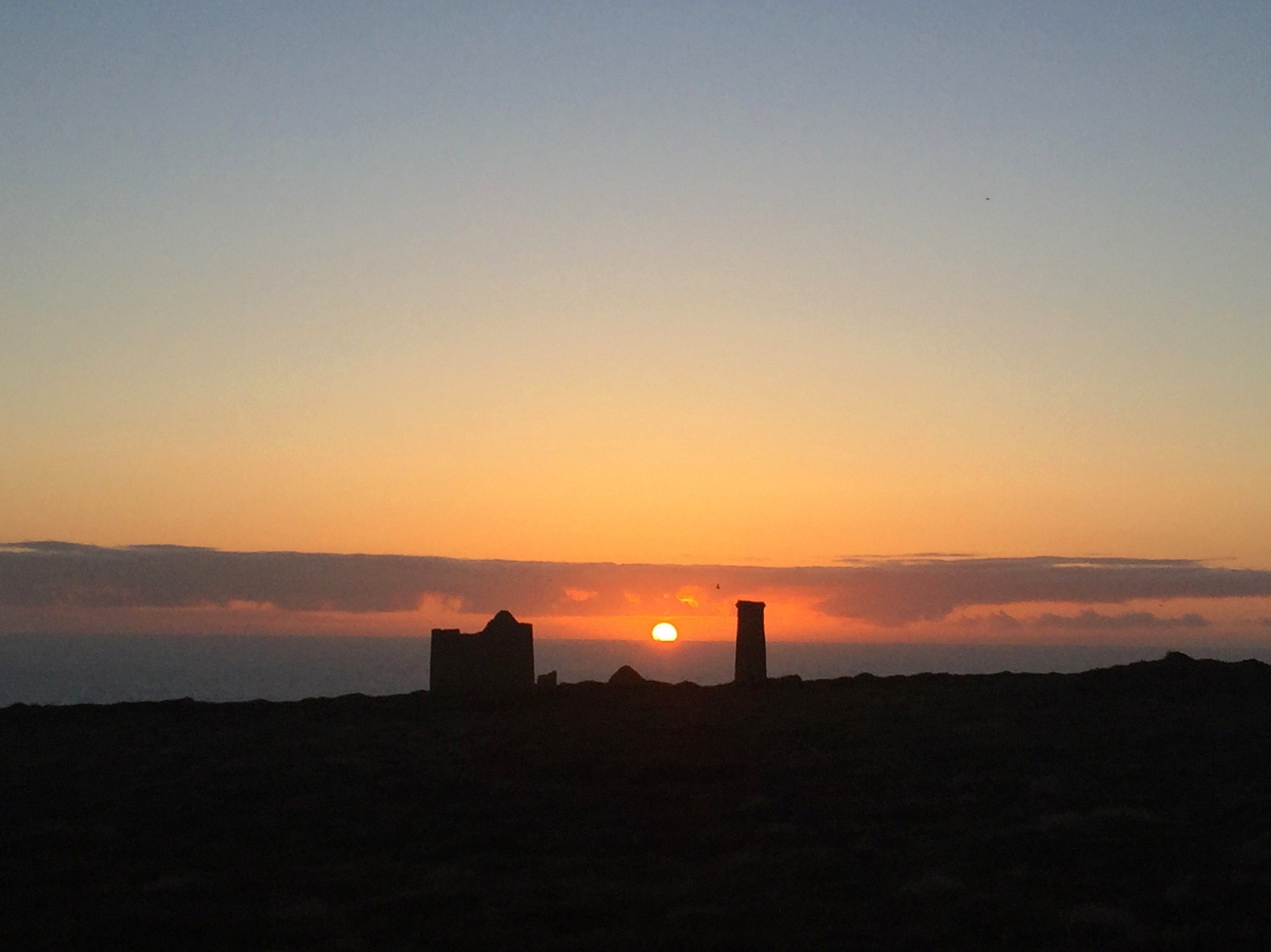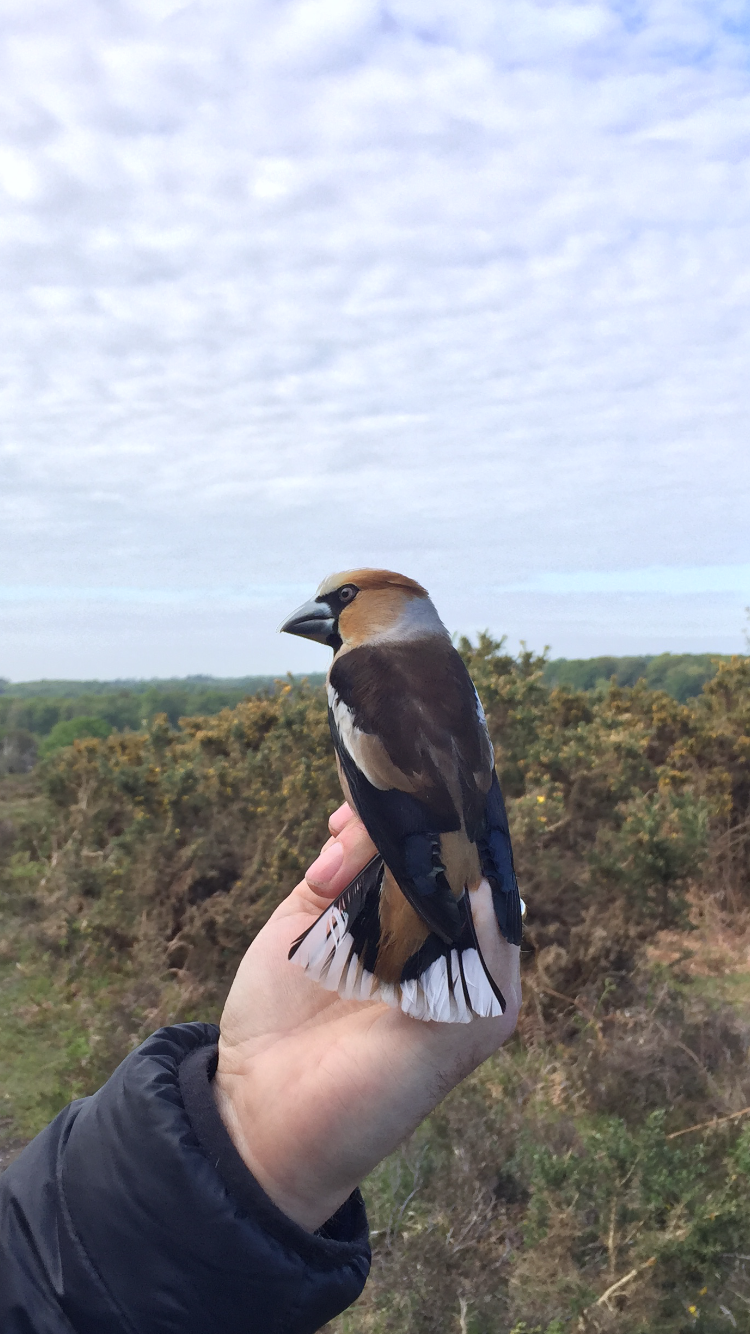We are looking back on some of our BSc graduates who have excelled in scientific research, ecology and conservation around the world since studying with us.
Today we meet Ellie who graduated from BSc Conservation Biology and Ecology in 2019 and is now a Regional Project Officer at Freshwater Habitats Trust.
Hi Ellie, it’s only been a couple of years since you studied with us, why don’t you tell us a bit about your career in that time that led you to where you are now?

Following completion of my undergraduate studies, I was successful in applying for the role of Research Assistant at The Sparrow Weaver Project. I worked as part of a small team of researchers in a remote part of South Africa’s Kalahari Desert for 6 months, collecting data as part of a long-term study on White-browed Sparrow Weavers. My time in South Africa was an incredible experience: not only was I able to build upon the research skills I’d gained during my undergraduate degree but I also had the privilege of experiencing some unforgettable encounters with the local wildlife, including African Ground Pangolins, highly venomous Cape Cobras and Cheetahs (and some super cool dung beetles and scorpions too!).
Upon my return from the Kalahari, I began applying for jobs in conservation and volunteered with Wild New Forest, assisting with a study on Hawfinches in the New Forest National Park which involved ringing and radio-tracking breeding male Hawfinches to obtain novel data on foraging preferences and habitat use. The following month I started my current role as Regional Project Officer at Freshwater Habitats Trust, a small national charity that aims to protect freshwater habitats and species. My role involves project management and working with a range of partners and stakeholders to deliver work including habitat creation and restoration, ex-situ conservation of rare wetland plants, farmer engagement and land surveys, volunteer management, environmental DNA surveys, public engagement including public talks, guided walks and citizen science surveys, budget management and communications including social media and press releases.
We are glad you have had such great opportunities since graduating, what made you choose to study your BSc with us at the University of Exeter Cornwall Campus?

The University of Exeter’s Penryn Campus is known for its excellent range of bioscience courses, facilities and esteemed researchers. I liked the thought of studying at a campus that was a hub for my discipline, as I thought it would be well-resourced with good facilities, given that bioscience students make up a large proportion of the student body at Penryn Campus. There was an excellent variety of extra-curricular opportunities and societies on offer, from watersports to ecology. From a personal point of view, being someone who prefers nudibranchs to nightclubs, I relished the thought of living in Cornwall and exploring its coastline and countryside in my spare time. I hoped that the campus would attract some like-minded people, who still wanted to be part of a vibrant student community, but didn’t want to live in the middle of a busy city and party every night.
What are your highlights from studying at the University of Exeter?

I had a wonderful time! There was always something going on, and when you wanted to escape the hustle and bustle there were lots of quiet spots tucked away in the beautifully landscaped campus grounds – the walled garden was a personal favourite of mine, and it was always full of wildlife. The campus had great transport links to the local town of Falmouth, which has a charming high street with many independent shops.
Cornwall has a very friendly atmosphere, and I loved exploring local places like St Mawes and the Helford in my spare time. Visiting the local beach, which was ideal for rock pooling and beach combing, provided an idyllic break from studying, as did the activities of the societies I was a member of – EcoSoc in particular ran some great events. I made lots of friends who shared my interests and it was a fantastic three years.
How do you think your BSc helped to prepare you for a career in Conservation?
My undergraduate degree provided me with a detailed understanding of the main ecological principles, which has been fundamental to my career as an ecologist. The presentation skills I gained during my degree have been invaluable. The presentation and report-writing skills I gained during my degree, including my contributions to the student-led Life Nature Magazine, were useful for my job application. Many roles now require candidates to have good written and verbal communication skills, as a significant part of research and conservation is spreading the word about the work effectively. My experience of leading groups as a Field Trip Demonstrator in my second and third year of study was useful when applying for this role, as I gained experience relevant to the guided walks I now run as part of my job. My role as Committee Member for EcoSoc, which involved organising wildlife events around Cornwall for society members, assisting with surveys, running bird ringing demonstrations and helping to run the campus BioBlitz, provided me with useful experience in public engagement and running and assisting with events, which are elements of my current job role.
 Do you have any advice for current or future students looking to pursue a career in something similar?
Do you have any advice for current or future students looking to pursue a career in something similar?
Make the most of all the opportunities on offer at the university and in the surrounding area. Do some work experience or volunteering alongside your studies or during university holidays. Get involved with societies – joining a committee can be a fun and rewarding experience, and it will provide you with team-working and organisational skills. See if there are any opportunities to develop your communication skills: many organisations are looking for employees with writing and social media experience for example, so get involved with the student-led publications like Life Nature Magazine and look for opportunities to contribute to or run social media accounts. Aim to get the widest range of experience possible, as Project Officer work is very varied and includes things like practical conservation work, public engagement, survey work and partnership work with a range of stakeholders. Try and get a variety of experience to reflect this.
Lastly, do you have any plans for the future?
I’d like to undertake a PhD and ultimately secure a job that combines research with research-led conservation work. I’m particularly interested in ornithology, migration and seabirds, and have loved undertaking regular ornithological fieldwork as a C permit bird ringer for the BTO alongside my current job, but I may look to pursue a career in this field in the future.
Thank you Ellie!
If you want to read more profiles from BSc Conservation Biology and Ecology graduates follow this link or explore our Graduate in Focus homepage to learn more about the degree programmes we have on offer!

